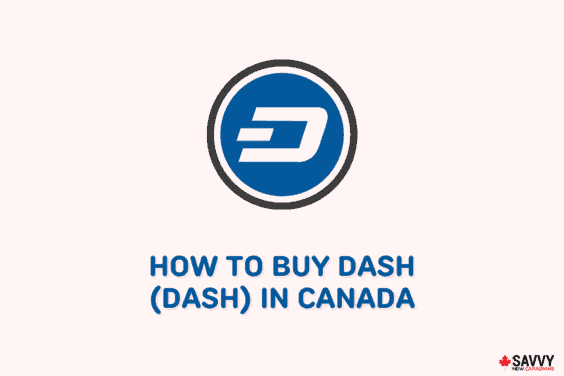The Fidelity Advantage Bitcoin ETF (FBTC) recently joined other cryptocurrencies ETFs in Canada that provide investors exposure to Bitcoin, the largest cryptocurrency by market capitalization.
Fidelity’s bitcoin ETF was launched on the Toronto Stock Exchange last December, under two tickers: FBTC and FBTC.U, with the latter denominated in US dollars.
In addition to its crypto ETF, Fidelity now also offers a bitcoin mutual fund – the Fidelity Advantage Bitcoin ETF Fund.
This FBTC review covers its asset allocation, fees, returns, how it compares to BTCC, and how to buy it in Canada.
Fidelity Canada Cryptocurrency Portfolios
While Fidelity Investments Canada ULC is better known for its traditional mutual fund and ETF portfolio (i.e. comprising stocks, bonds, and commodities), it now also offers exposure to digital currencies.
As of this writing, its crypto offering includes:
- Fidelity Advantage Bitcoin ETF
- Fidelity Advantage Bitcoin ETF Fund
The company is also offering a digital asset trading and custody platform for institutional investors in Canada.
Lastly, it appears that Fidelity’s All-in-One ETF portfolios will be gaining exposure to bitcoin soon as per this press release.
What is FBTC?
Fidelity Advantage Bitcoin ETF (FBTC) offers an easy way for you to invest in bitcoin without needing to open a cryptocurrency exchange account or buy a hardware wallet.
The ETF is traded on the TSX under two tickers: FBCT and FBTC.U.
FBTC is denominated in Canadian dollars, while FBTC.U is in US dollars. A currency-neutral version is not available.
Some of the key fund facts for FBTC as of January 14, 2022, are:
- Inception date: November 30, 2021
- Assets under management: $22.1 million
- Management fee: 0.40%
- Management expense ratio (MER): 0.95% (estimated)
- Eligible accounts: Registered and non-registered investment accounts
- BTC per unit: 0.00033913
- Units per BTC: 2,948.6824
As expected, FBTC carries a “high” risk rating which means that you can expect higher than average volatility in the price of the underlying asset and your portfolio’s value.
Simply put, you should not invest in FBTC and other crypto ETFs like BTCC, EBIT, and BTCX if you can’t afford to lose your funds or are investing for the short term.
FBTC can also be held in registered accounts like TFSAs and RRSPs, which is not the case when you buy cryptocurrencies directly from a crypto exchange.
FBTC Holdings
FBTC invests directly in bitcoin and does not hold any other digital asset.
8% or more of the bitcoin is held offline in cold storage using Fidelity’s in-house custodial services.
Offline storage reduces the risk of loss dues to hackers and other bad players who may try to steal the coins.
FBTC Returns and Fees
FBTC is a brand-new ETF and does not have returns or performance data as of this writing. Typically, you won’t get this data until after one year.
The management fee for FBTC is 0.40%, and its MER is estimated at 0.95%.
MER includes the management fee, operating expenses, and trading costs.
Pros and Cons of FBTC
Pros
If you want to invest in bitcoin, this ETF can give you exposure while offering CIPF protection should the company become insolvent.
FBTC can be held in both registered and non-registered accounts. When you buy BTC directly from a crypto platform, your account is non-registered by default.
Fidelity has its own institutional-grade cold storage, so your bitcoin holdings are safe.
A bitcoin ETF means you don’t need to worry about buying a crypto wallet or keeping your private keys safe.
Cons
FBTC is limited to bitcoin. If you want exposure to other top crypto assets like Ethereum via an ETF you will need to look elsewhere.
Crypto ETFs are high-risk and are not suitable for risk-averse investors. Also, it is not diversified, and you can lose your entire capital if bitcoin’s value goes to zero.
While cold storage increases the security of FBTC’s bitcoin holdings, there’s nothing like 100% security when it comes to crypto.
How To Buy Fidelity Bitcoin ETF in Canada
You can buy FBTC in Canada using stock trading apps like Questrade and Wealthsimple Trade.
Wealthsimple Trade: This brokerage platform does not charge trading commissions. You can use it to trade thousands of stocks and ETFs.
It also has its own crypto-trading platform: Wealthsimple Crypto.
Get a cash bonus when you open an account and trade $150 worth of assets.
Wealthsimple Trade

Trade stocks, ETFs, and options
Excellent trading platform for beginners
Deposit $150+ to get a $25 cash bonus
Transfer fees waived up to $150
Questrade: This brokerage platform offers commission-free ETF purchases, including FBTC. Also, its trading commissions are competitive when you sell.
In addition to stocks and ETFs, Questrade also offers bonds, GICs, mutual funds, CFDs, and more.
Questrade

Trade stocks, ETFs, options, FX, bonds, CFDs, mutual funds, etc.
Get $50 trade credit with $1,000 funding
Low and competitive trading fees
No quarterly inactivity fees
Access to advanced tools and trading data
Top platform for advanced traders
Transfer fees waived
If you’d rather buy bitcoin, Ethereum and other cryptocurrencies directly, you can read my list of the best cryptocurrency exchanges in Canada.
FBTC vs BTCC
BTCC is the Purpose Bitcoin ETF. It was the first bitcoin ETF in the world when it was launched in February 2021.
It is available under four tickers, including:
- BTCC: Denominated in Canadian dollars and hedged against USD
- BTCC.B: Denominated in Canadian dollars and unhedged
- BTCC.U: Denominated in US dollars
- BTCC.J: Denominated in CAD with carbon offset (not hedged to USD exposure)
Purpose Investments also offer Ether ETFs.
Like FBTC, you can hold BTC in both registered and non-registered accounts.
BTCC has a 1% management fee, and its MER is capped at 1.50%. It is 100% invested in bitcoin and as of January 14, 2022, had $1.6 billion in assets under management.
Learn more about BTCC in this review.
Fidelity Bitcoin ETF FAQ
No, Fidelity only has a bitcoin ETF and mutual fund at this time.
Bitcoin is the world’s largest cryptocurrency. Its price tends to fluctuate rapidly, and you can lose money. You should only invest in bitcoin if you understand the risks.
You can purchase FBTC on all the main stock trading platforms in Canada, including Questrade, Wealthsimple Trade, Scotia iTrade, TD Direct Investing, and more.
Some Bitcoin stocks (ETFs) in Canada include FBTC, BTCC, BTCX, and EBIT. You can easily buy them on any brokerage platform.
Related:
Disclaimer: Cryptocurrency is a volatile and speculative investment. If you decide to invest, we recommend you do your own research and only commit funds you can afford to lose. The author may own one or more of the crypto assets mentioned in this article.




